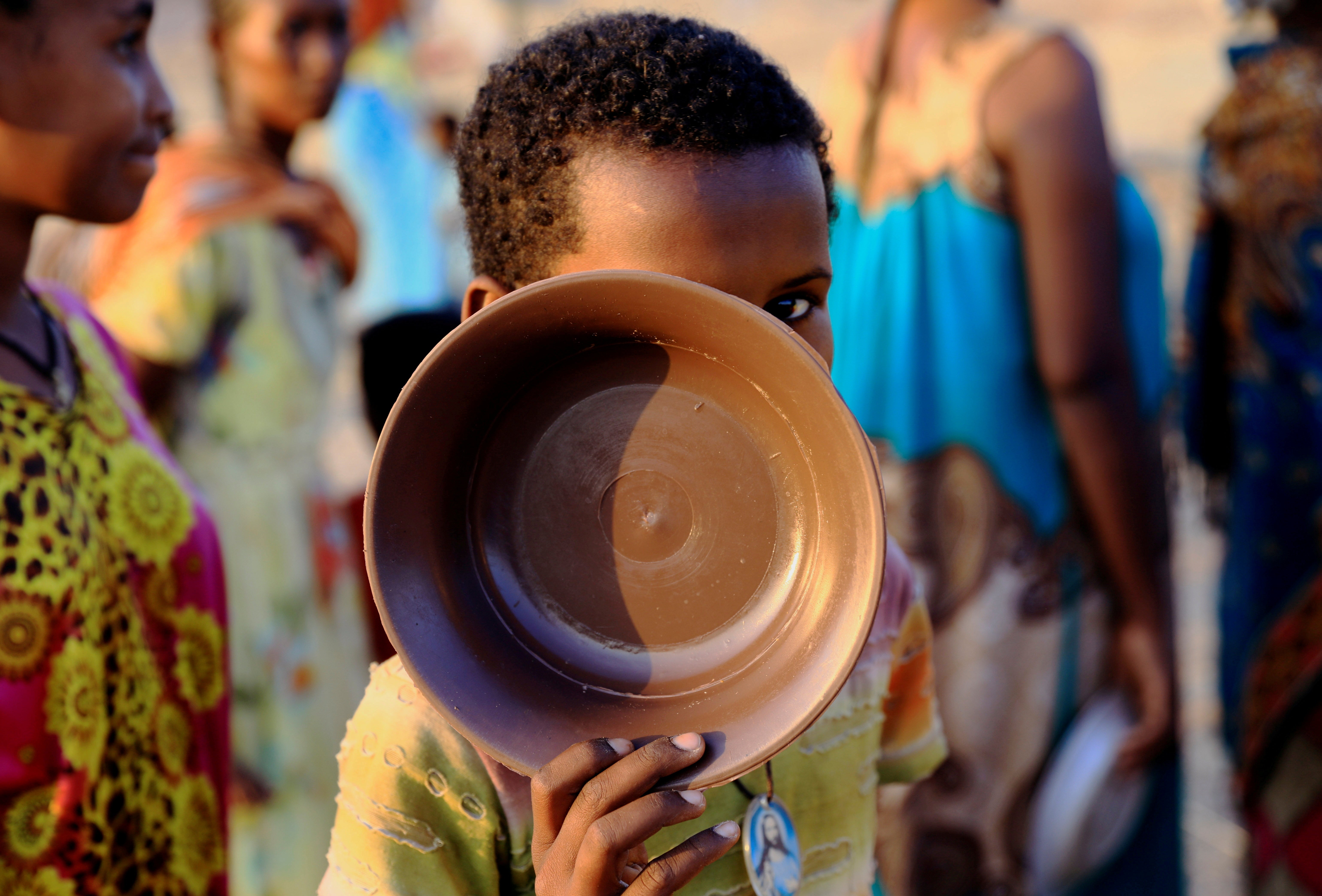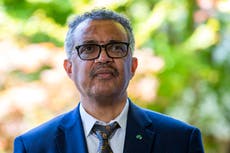Ethiopia military airstrike hits school as UN warns millions of children need humanitarian assistance
‘Electricity continues to be cut off. Fuel for generators has run out. That leaves 96,000 Eritrean refugees in Ethiopia without clean water’, UN official warns

An airstrike from Ethiopia has reportedly caused major damage to a school in the capital of the Tigray region as the conflict between regional forces and the government in Addis Ababa continues to escalate.
Federal forces have traded blows with the Tigray’s People’s Liberation Front over the last couple of weeks following a worsening in relations between the nation’s Nobel Peace Prize-winning Prime Minister Abiy Ahmed and the Tigray leaders who once dominated the country’s ruling coalition.
The latest reported air raid, which the national government has not yet commented on, followed what the government said were missile strikes from the Tigray region on airports in Bahir Dar and Gonda, as well as the neighbouring Eritrean capital of Asmara.
It was not immediately clear if anyone had been harmed at the school in Mekele. In an email seen by the Associated Press, a university official who confirmed the strike had taken place asked “how on earth” the government could bombard its own people.
Hundreds of people are reported to have been killed over a fortnight of clashes, while the UN estimates more than 30,000 refugees have fled to neighbouring Sudan - including an estimated 12,000 children.
The UN said it is now making plans for as many as 200,000 refugees and made an urgent appeal for $200 million to assist them.
The conflict is now moving closer to camps in northern Tigray that house some 100,000 refugees from Eritrea, risking a secondary displacement of those who had fled their home country in search of humanitarian support.
“Electricity continues to be cut off. Fuel for generators has run out. That leaves 96,000 Eritrean refugees in Ethiopia without clean water,” UN spokesman Stephane Dujarric told reporters.
Meanwhile Unicef estimates some 2.3 million children in the Tigray region are in need of humanitarian assistance - with hunger among the greatest issues affecting those in the area.
Earlier in the year, as Covid-19 disrupted supply lines, a plague of locusts ravaged crops in the east of the continent - impacting Ethiopia as well as Kenya, Uganda, Somalia and a number of south asian and Middle Eastern states.
“Even before the current escalation, at least 54,000 children lived in refugee camps in the region and 36,000 were internally displaced by natural disasters and armed violence”, UNICEF Executive Director Henrietta Fore said. “Thousands more have been displaced in the past few weeks.
“We are particularly alarmed by malnutrition rates in the region. Acute malnutrition increased by one third between 2019 and 2020 largely due to the desert locust infestation and Covid-19. I am concerned that, without sustained humanitarian access, many more children will be at risk as malnutrition treatment supplies in the region will last only until December.”
The UN’s organisation in support of children urged warring factions to allow aid groups to access the region.
“Every effort should be made to keep children out of harm’s way, and to ensure that they are protected from recruitment and use in the conflict. Children should also be protected from the risk of sexual and gender-based violence and not separated from their families”, Ms Fore added.
“All parties to the conflict should refrain from the use of explosive weapons in populated areas and should protect essential civilian infrastructure such as schools, healthcare facilities and water and sanitation installations.”
Additional reporting by agencies
Join our commenting forum
Join thought-provoking conversations, follow other Independent readers and see their replies
Comments


Bookmark popover
Removed from bookmarks